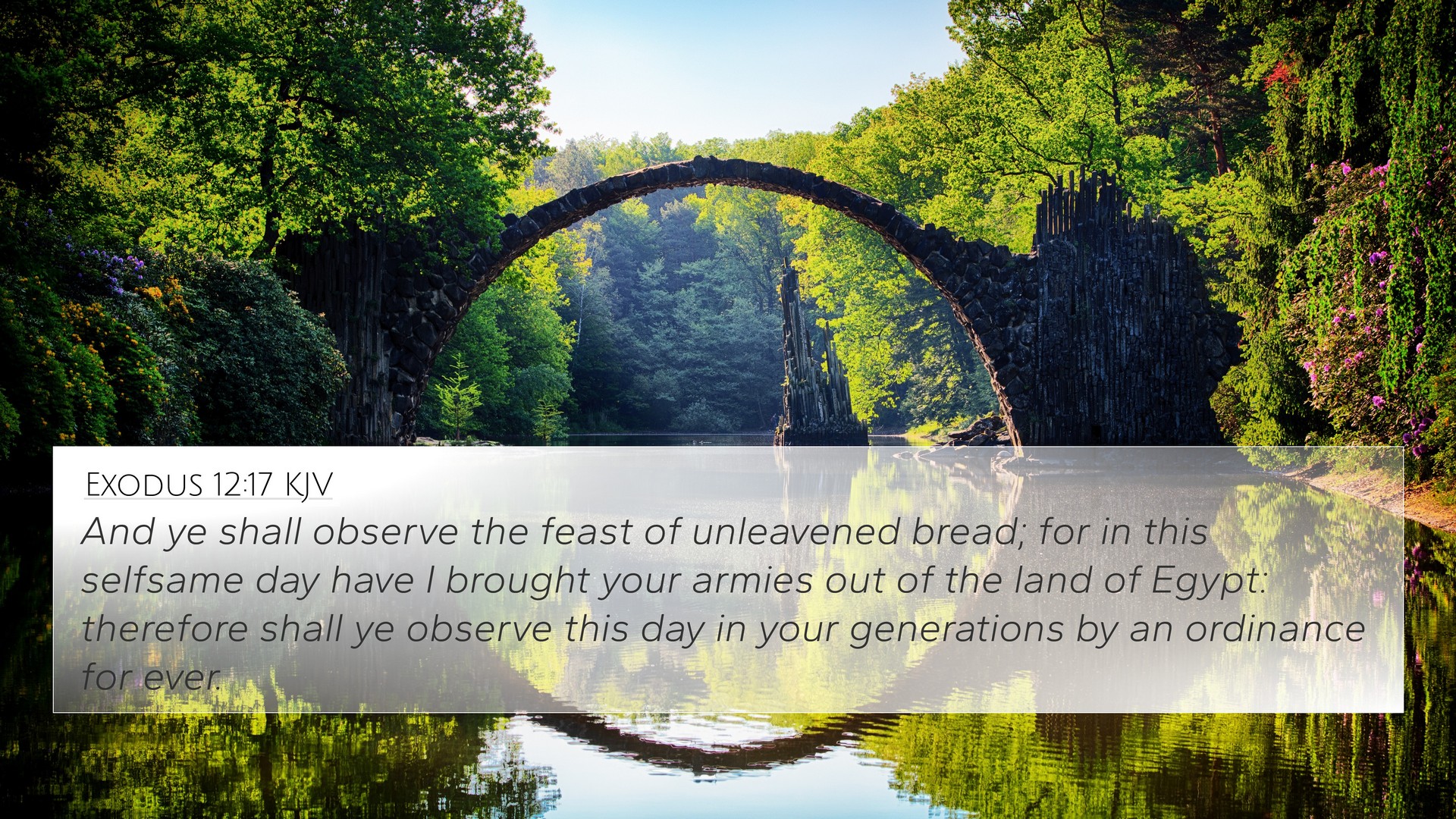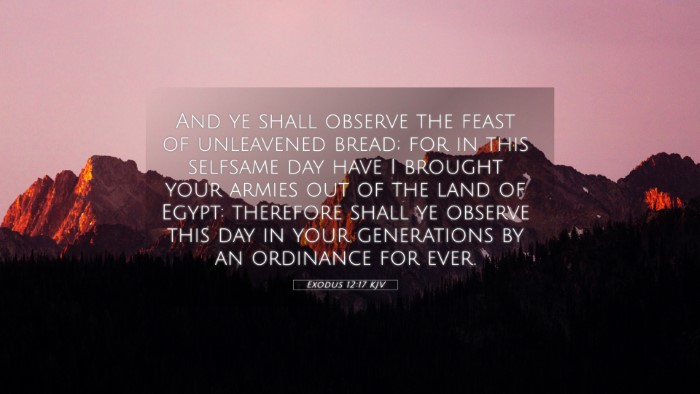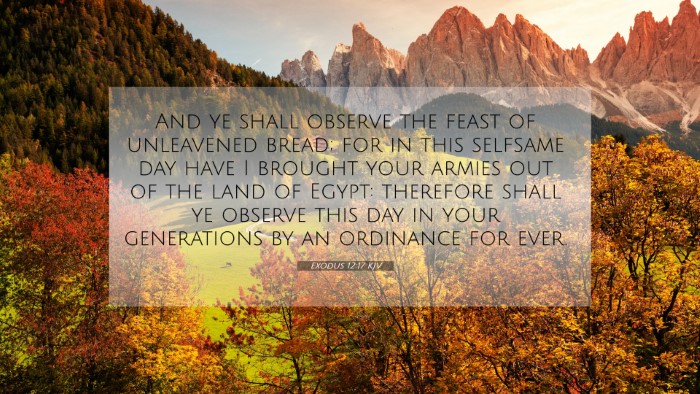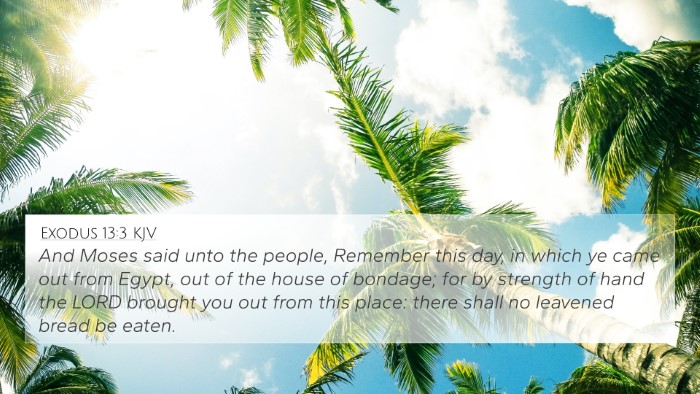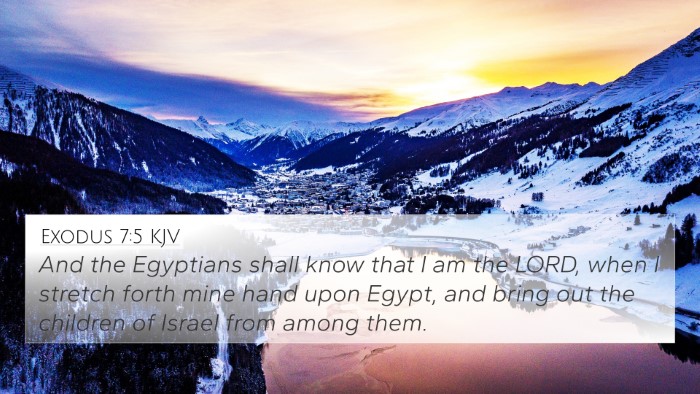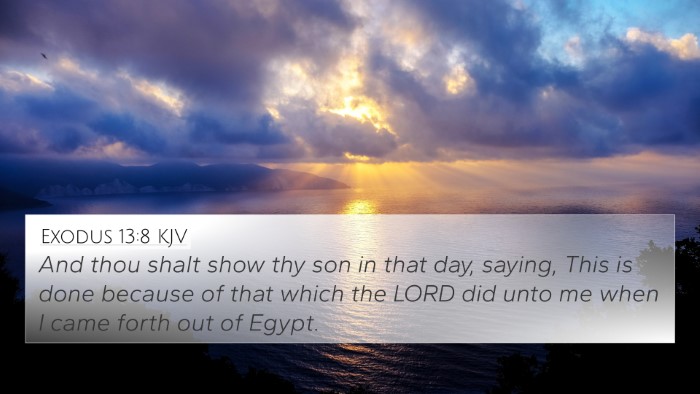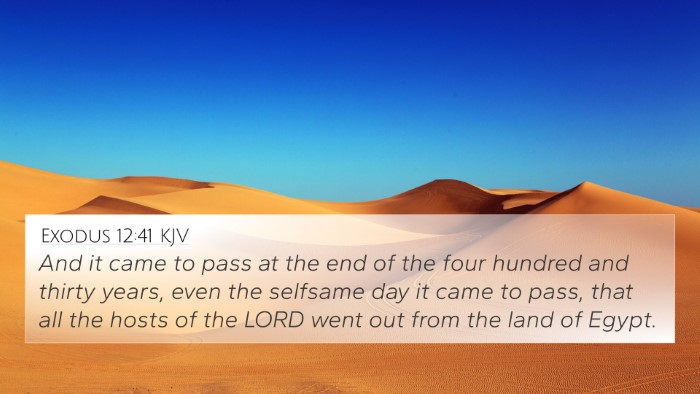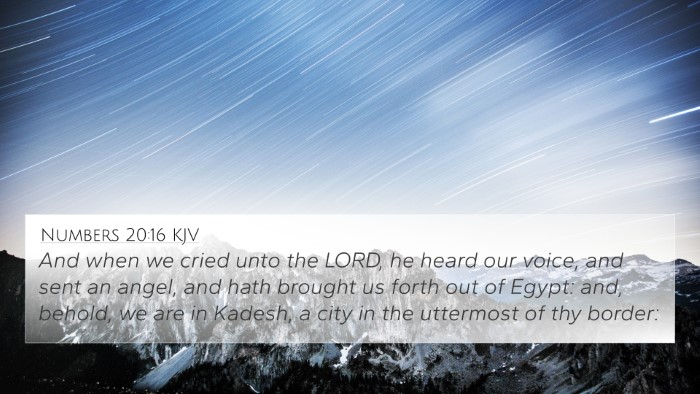Understanding Exodus 12:17
Exodus 12:17 states: "And ye shall observe the feast of unleavened bread; for in this selfsame day have I brought your armies out of the land of Egypt: therefore shall ye observe this day in your generations by an ordinance for ever." This verse is a pivotal moment in Israel's history, reflecting God's command to remember the exodus from Egypt and the establishment of the Passover and Feast of Unleavened Bread.
Key Insights from Biblical Commentaries
Matthew Henry's Commentary
Matthew Henry emphasizes the significance of the Feast of Unleavened Bread as a reminder of God's deliverance. He points out that the instruction to remember this event is crucial for the Israelites to maintain a sense of identity and gratitude for God's salvation. The lack of leaven symbolizes purity and separation from sin, urging believers to lead a life free from corruption both spiritually and morally.
Albert Barnes' Notes on the Bible
Albert Barnes highlights the importance of the Feast of Unleavened Bread as an ordinance that was to be perpetually observed by the Israelites. He draws attention to the connection between this observance and the broader narrative of redemption found throughout scripture. The removal of leaven is seen as an act of obedience that reflects God's desire for His people to be holy and set apart, mirroring New Testament themes of holiness and sanctification.
Adam Clarke's Commentary
Adam Clarke provides an analytical approach, explaining the historical and theological context of the feast. He notes that the feast serves as a celebratory acknowledgment of the liberation from Egypt and the beginning of a new chapter in the Israelites' lives. Clarke elaborates on how this moment foreshadows the ultimate redemption through Christ, drawing parallels between the Old Testament sacrifices and New Testament revelations of Jesus as the ultimate Passover lamb.
Bible Cross References
- Leviticus 23:6-8 - This verse describes the Feast of Unleavened Bread further, detailing the days dedicated to this significant celebration.
- Deuteronomy 16:3 - Emphasizes that the feast should be observed in memory of the exodus and highlights the theme of remembrance found in Exodus 12:17.
- 1 Corinthians 5:7-8 - New Testament references linking leaven with sin, reinforcing the importance of being spiritually pure.
- John 1:29 - Introduces Jesus as the Lamb of God, connecting the sacrificial themes in Exodus with the New Testament revelation.
- Hebrews 11:28 - Discusses the faith of Moses in observing the Passover, linking contemporary faith practices with those of the Old Testament.
- Matthew 26:17-19 - Represents the Last Supper, which ties back to the Passover traditions established in Exodus.
- Romans 6:6 - Discusses being free from sin, drawing a spiritual parallel to the deliverance from Egypt.
- Revelation 5:9 - Indicates that believers are redeemed by the blood of the Lamb, linking back to the sacrificial acts commemorated during the Passover.
- Colossians 1:13-14 - Speaks of being delivered from darkness, reflecting the physical liberation from Egypt as seen in Exodus.
- Matthew 2:15 - References God’s protection and call out of Egypt, echoing the narrative of the Exodus.
Connections Between Bible Verses
Exodus 12:17 is deeply interwoven with themes of deliverance, remembrance, and holiness throughout both the Old and New Testaments. These connections highlight how the foundational acts of God in the lives of the Israelites are prophetic and point towards the work of Christ.
Thematic Bible Verse Connections
The themes of redemption and deliverance permeate the scripture, making Exodus 12:17 a launching point for numerous comparisons within the Bible. The removal of leaven in both the physical and spiritual senses serves as a metaphor for the lives of believers today, as they seek to live in holiness and sincerity.
Cross-Referencing Biblical Texts
Using tools for Bible cross-referencing, such as concordances or study guides, can enhance understanding of Exodus 12:17. It is beneficial to explore how various biblical texts correlate with one another to uncover deeper meanings and insights.
Inter-Biblical Dialogue
Engaging in a comparative analysis of Exodus 12:17 and its related verses allows for a rich conversation across the scriptures. Themes such as obedience, remembrance, and holiness are not just isolated to Exodus but are echoed throughout biblical narratives, offering a cohesive understanding of God's redemptive plan.
Conclusion
Exodus 12:17 is a powerful verse that encapsulates the essence of Israel's faith community and their call to remember God’s miraculous acts. Through analyzing this verse alongside its cross-references, believers today can find profound themes that resonate in both their spiritual journeys and their collective identity in faith.
